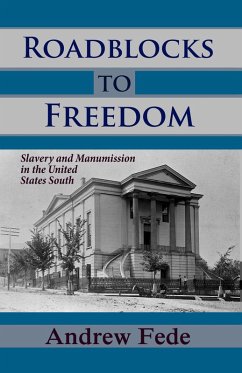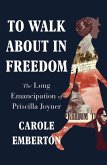Slave owners in almost all slave societies had the right to manumit or free all or some of their slaves. Slavery law also permitted people to win their freedom if they were held as slaves contrary to law. In this book, Andrew Fede provides a comprehensive view of how some enslaved litigants won their freedom in the courtand how many others, like Dred and Harriet Scott, did not because of the substantive and procedural barriers that both judges and legislators placed in the way of people held in slavery who sought their freedom in court.
From the 17th century to the Civil War, Southern governments built roadblock after roadblock to the freedom sought by deserving enslaved people, even if this restricted the masters' rights to free their slaves or defied settled law. They increasingly prohibited all manumissions and added layers of procedure to those seeking freedomwhile eventually providing a streamlined process by which free blacks "voluntarily" enslaved themselves and their children.
Drawing on his three decades of legal experience to take seriously the trial process and rules under which slave freedom cases were decided, Fede considers how slave owners, slaves, and lawyers caused legal change from the bottom up.
Dieser Download kann aus rechtlichen Gründen nur mit Rechnungsadresse in A, B, CY, CZ, D, DK, EW, E, FIN, F, GR, H, IRL, I, LT, L, LR, M, NL, PL, P, R, S, SLO, SK ausgeliefert werden.







![A Short History of Reconstruction [Updated Edition] (eBook, ePUB) A Short History of Reconstruction [Updated Edition] (eBook, ePUB)](https://bilder.buecher.de/produkte/42/42026/42026854m.jpg)

